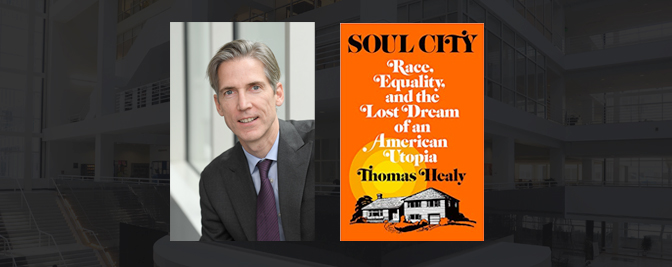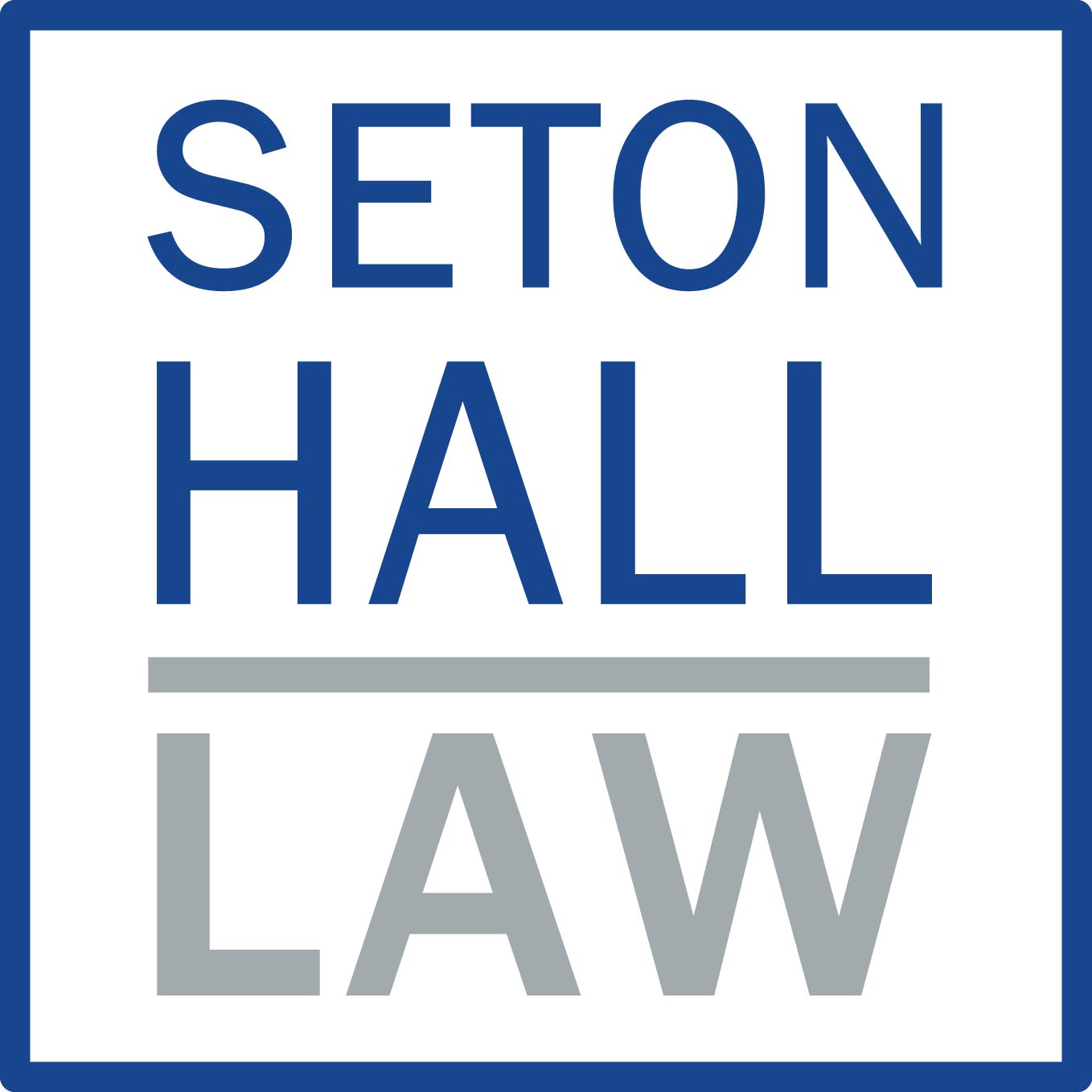
Professor Thomas Healy in the Spotlight

Professor Thomas Healy is a nationally renowned legal expert in the areas of constitutional law, freedom of speech, legal history, civil rights, and federal courts. He is entering his eighteenth-year teaching at Seton Hall Law. In addition to being a stellar teacher, Healy’s background in journalism coupled with his passion for the law makes him one of the most gifted legal scholars in the country. In his latest book, Soul City: Race, Equality, and the Lost Dream of an American Utopia, available on Amazon, Healy combines his passions to tell the story of an attempt in the 1970s to create a city dedicated to the promise of racial equality in the heart of Klan Country.
The book is based on civil rights leader Floyd McKissick’s idea to build a model city in North Carolina based on the ideals of black economic empowerment. Soul City received funding from the Nixon Administration and other supporters to begin construction on a former slave plantation that would include advancements in city planning and governance. However, the city’s vision to improve social mobility and promote equality was thwarted by politicians and news outlets, and ultimately was forsaken just ten years later.
Healy believes the story of Soul City offers lessons for today. “It sheds light on the longings and aspirations of Black Americans,” he says. “It also reveals the many forces – political, social, and economic – standing in the way of racial equality.”
The Hutchins Center for African and African American Research at Harvard University awarded Healy a Fellowship in 2016 to support his research for Soul City. This support was supplemented by a Fellowship in 2015 from the John Simon Guggenheim Memorial Foundation and a Public Scholar Grant from the National Endowment for the Humanities.
“I couldn’t have written this book without the support of those fellowships and grants,” Healy says. “I also had tremendous support from Seton Hall Law, including a year-long sabbatical during which I did a lot of the time-consuming archival research.”
Healy’s writing prowess was evident very early. He attended the University of North Carolina at Chapel Hill to earn his B.A. in Journalism in 1991. During these years, he served as a staff writer and editor for The Daily Tar Heel. Following graduation, he landed a role as a reporter at The News & Observer in Raleigh, North Carolina. The newspaper also happened to be a central figure in the story of Soul City. Moving to Columbia Law School, Healy held the title of Book Review and Essay Editor for the Columbia Law Review. Capitalizing on his interests in Constitutional Law, Healy served as a Supreme Court Correspondent for the Baltimore Sun in 2001 before practicing at Sidley Austin in Washington, D.C.
“My background as a journalist has definitely influenced my scholarship,” says Healy. “It has made me appreciate the value of clear writing and the importance of story-telling as a way to understand the past and reflect on the present.”
Since joining Seton Hall Law in 2003, his scholarly work has appeared in a variety of publications, including the Michigan Law Review, the Notre Dame Law Review, The Atlantic, the New York Times, the L.A. Review of Books, and The Nation. In 2013, he published his first book, The Great Dissent: How Oliver Wendell Holmes Changed His Mind – and Changed the History of Free Speech in America. That book explored the life of Supreme Court Justice Oliver Wendell Holmes, the one-time critic of free speech who authored an iconic dissenting opinion extolling it. The book won the Robert F. Kennedy Book Award, the Hugh M. Hefner First Amendment Award, and the New Jersey Council for the Humanities Book Award. Additionally, it was recognized as a New York Times Book Review Editor’s Choice and was named one of the fifteen best non-fiction books of 2013 by the Christian Science Monitor.
“Professor Healy’s scholarship and teaching represent not only his expertise, but also his passion for the promotion of civil rights, liberties, and equality,” said Dean Kathleen Boozang. “Soul City offers an important story about our nation striving to live up to its ideals.”





